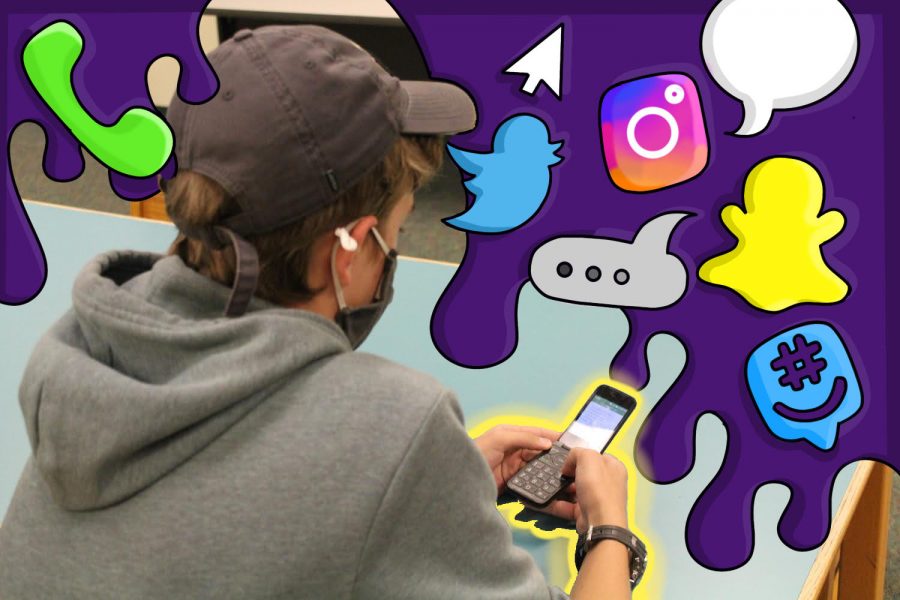Zooming in on technology in classrooms
As of last year, senior Henry Burnson had no presence on Instagram, TikTok or any other social media platforms. His absence on social media was not only due to personal preference, but because apps like Snapchat could not be downloaded on his flip phone.
“I felt like I was missing out on a lot of things, like I missed a lot of stuff that my friend group would be doing, or you know just simple things like being able to look up stuff when you’re not at home,” Burnson said.
Burnson’s decision to stick with his flip phone eliminated online distractions but made other aspects of his high school life more difficult. As COVID-19 led to E-Learning, switching to a smartphone was the only logical choice, Burnson said.
“Google Classroom is obviously a big thing, Zooms, updates and stuff like that,” said Burnson. “A lot of my club meetings for theater and stage crew went virtual, so I can keep up with that much easier [now].”
According to senior Elana Zimmerman, she spends about four hours per day on her smartphone.
“I procrastinate [my schoolwork] to begin with, but I especially use my phone as an excuse,” said Zimmerman. “I’m frequently on it when I shouldn’t be, especially when studying.”
Although Zimmerman is often distracted by her screens, she also experiences the benefits of easier access to classroom materials.
“I have my Classroom notifications sent to my phone, so I always know when I have an upcoming assignment due or when the teacher posts something after class,” said Zimmerman. “It’s just so much easier than checking my computer all the time.”
Lucía Magis-Weinberg, postdoctoral researcher in developmental science at the Institute of Human Development at the University of California at Berkeley, said in a video conference that increased screen time has a negative effect on the physical health of teens.
“For sleep and physical activity, the evidence is very clear, it’s negative,” said Magis-Weinberg. “For mental health, the evidence is not clear. Some studies say it’s good, some studies have found that it’s bad. What I found in my studies is that depending on how you’re using your screen, you can [experience] a positive or a negative impact.”
Individuals who use their devices in productive ways that contribute to a meaningful, balanced life, such as using them to organize their schedule or to track their steps, find a positive benefit in their screen time. Meanwhile, those who absent-mindedly use their screens tend to lose control and experience negative impacts, Magis-Weinberg said.
Burnson began his senior year with a Snapchat account but chooses to stay off most other forms of social media.
“I don’t think [using a smartphone is] essential,” said Burnson. “I think I just do it because it’s convenient, but I never feel like I need to be on it.”


